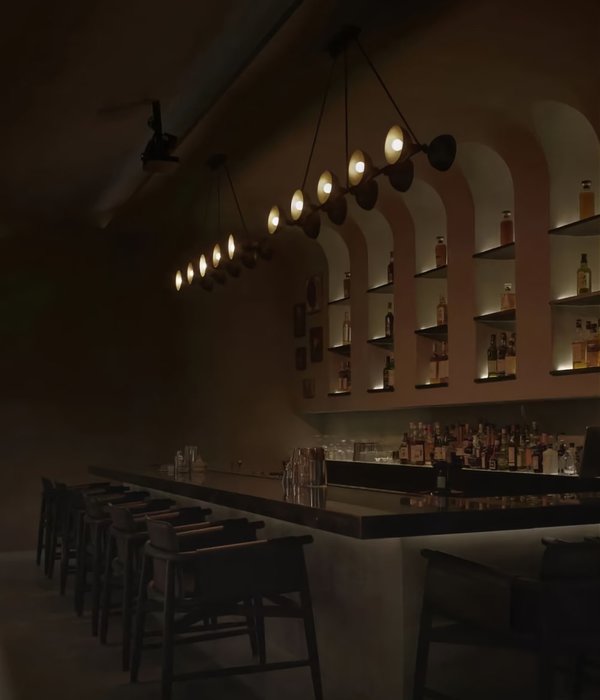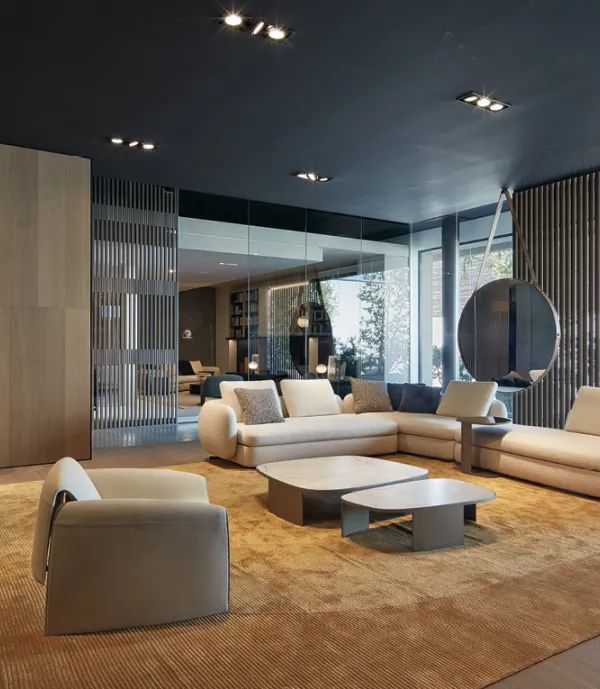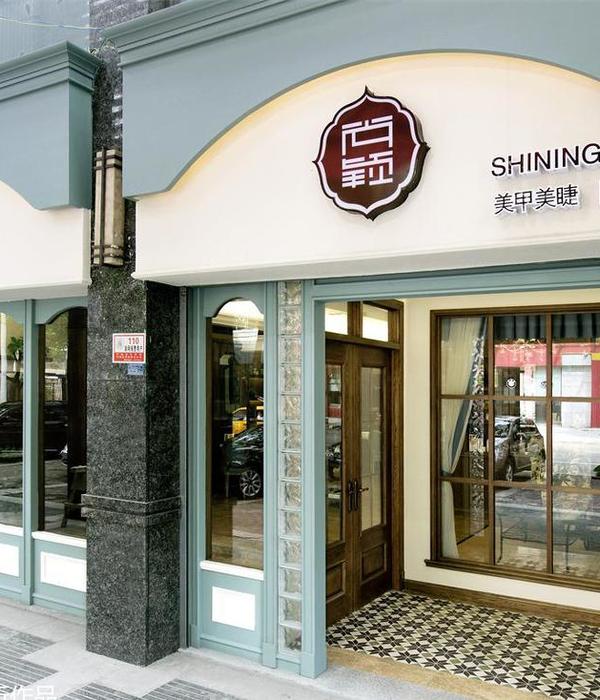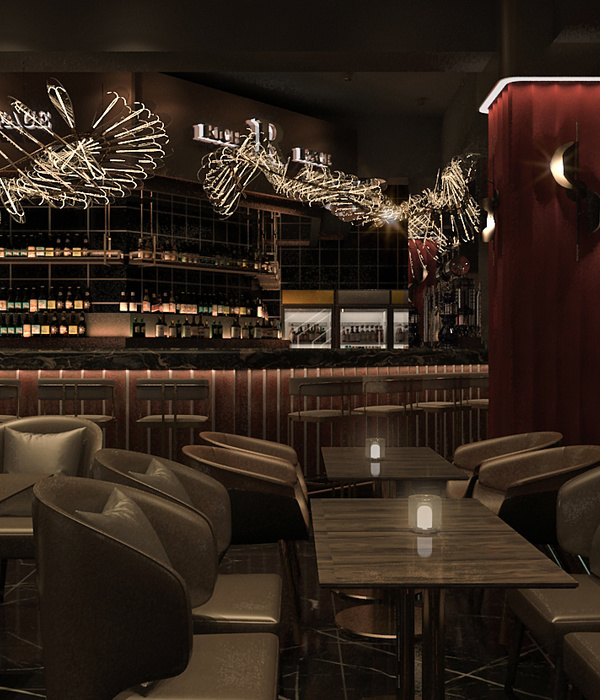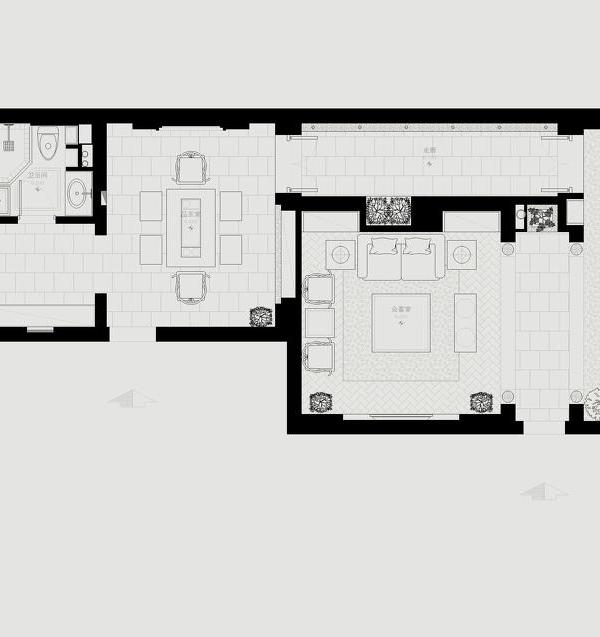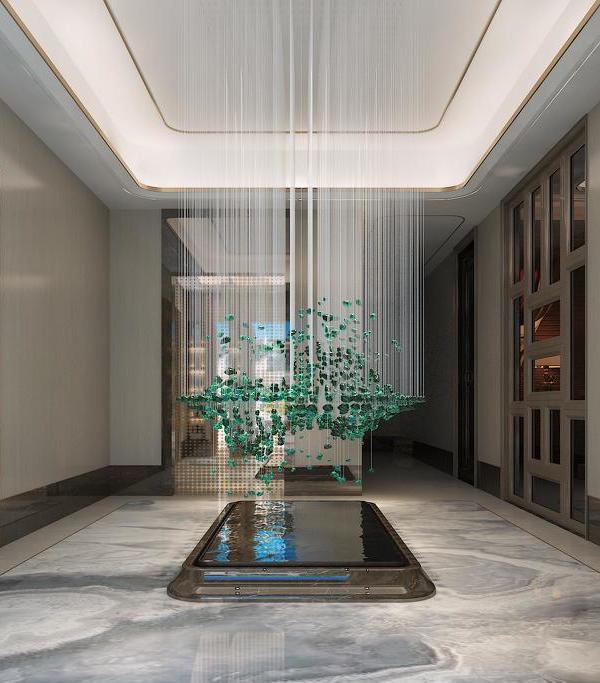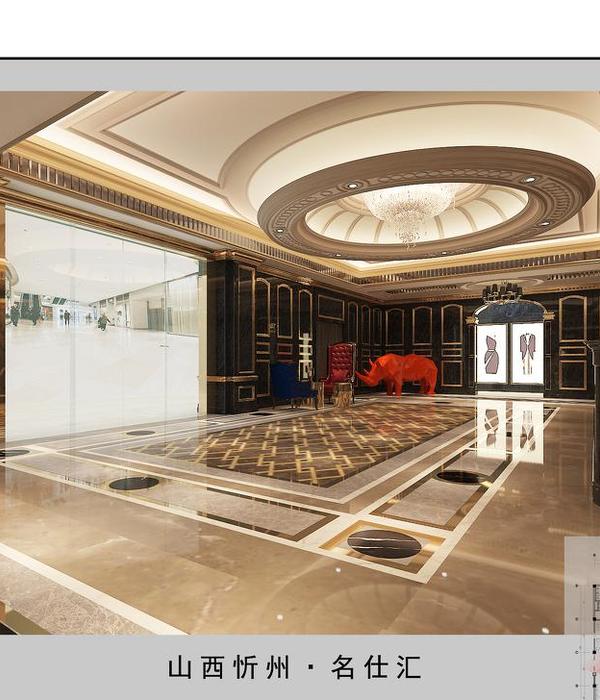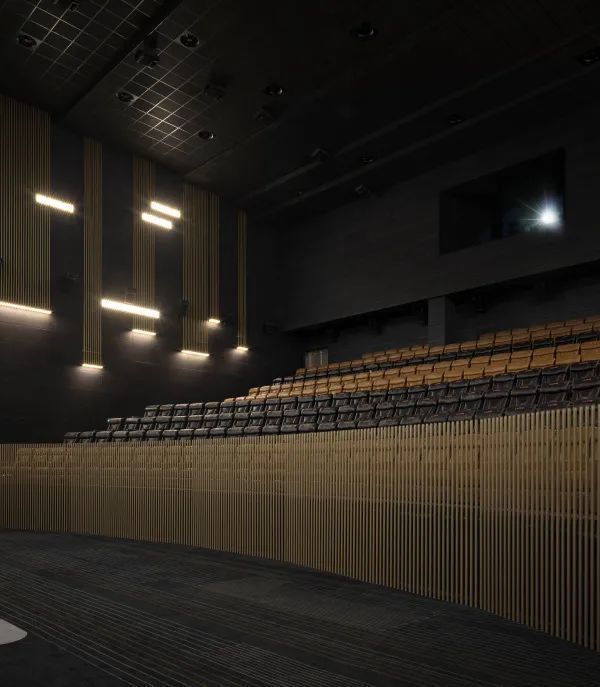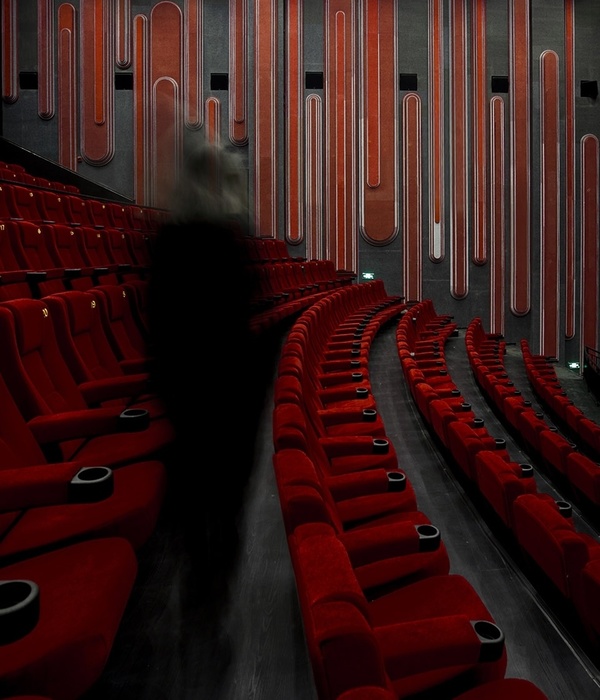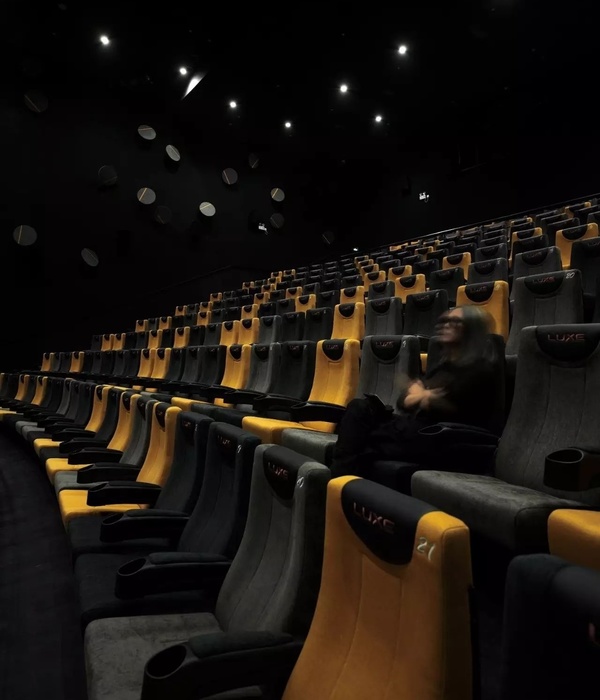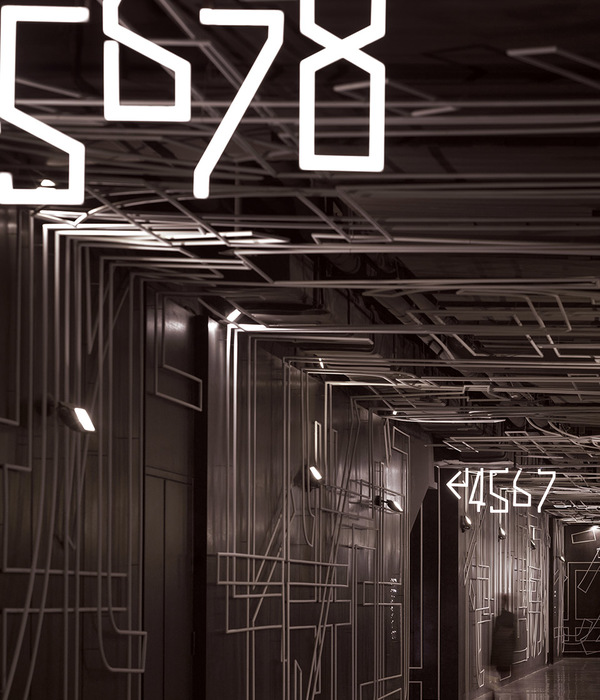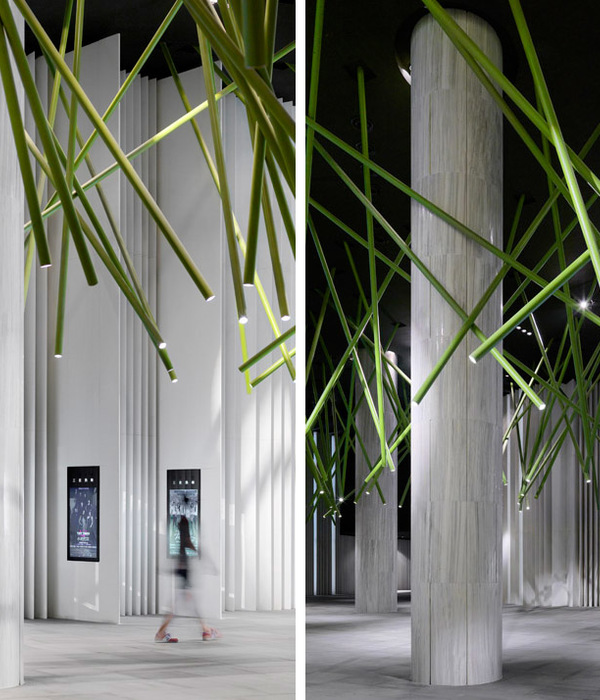该项目位于会安的老城区,这里自从被联合国教科文组织正式列为世界遗产保护区以来,发展十分迅速。最近,当地的许多老房子被改造成商店和餐厅,每天为大量游客提供服务。该地区以美丽的瓦片屋顶景观和内庭院而闻名,在室内外之间形成有层次的空间品质。但由于商业的混乱发展,这种品质已经慢慢被破坏,最终导致老城区失去了平静生活方式的魅力。
ATLAS HOTEL HOIAN is located in Hoi An’s “Old Town; an area which has rapidly grown since it was officially named by UNESCO as a World Heritage Site. Recently, most of the ancient houses have been converted into shops and restaurants that serve the daily influxof tourism. The neighborhood is well known for its beautiful tiled-roofscape and its internal courtyards that provide a layered spatial quality between the inner and outer spaces. This quality has been slowly eroded due to chaotic commercial flow. As a consequence, Old Town has lost its charm of a calm and peaceful lifestyle.
▼酒店立面,facade of Atlas Hotel © Hiroyuki Oki
Atlas酒店位于不规则的地块上,设计将地形的限制转化为酒店的独特个性。几个内庭院划分了线性的布局,通过抬升建筑,完全释放了底层空间,创造出连续的内部庭院。这种空间品质既不仅体现了新会安的活力,而且保留了老城区的魅力。
Located in an irregular plot of land, the design approach of Atlas Hotel is to turn this constrain into its unique character. The linear layout is divided into several internal courtyards, and by lifting the building above the site, it completely frees the ground floor to create an inter-connected network of courtyards. This spatial quality reflects the dynamism of the new Hoi An but also retains the charm of the Old Town.
▼酒店外观,external view of Atlas Hotel © Hiroyuki Oki
▼内庭院,底部架空,inner courtyard, overhead ground floor © Hiroyuki Oki
建筑立面覆盖当地的砂岩块,结合裸露的混凝土板以及沿走廊布置的一系列绿植。全部外立面均设置绿植,不仅可以遮阳,而且使凉爽的风穿过酒店空间。此外,穿孔石墙可以采光而且不会阻碍空气流通。该方案使这里可以进行自然通风,减少空调的使用。
The building façade is clad with locally-sourced sandstone pieces used in combination with an exposed concrete slab and a series of planters along the corridors. The planters are arranged along the entire façade of the hotel not only provides solar shading but also allows cooler air to ventilate the spaces.In addition, the perforated stone walls admit daylight without blocking air flow. This scheme allows the place to be naturally ventilated to minimize the use of air conditioner.
▼砂岩块、混凝土板和绿植,sandstone pieces, a concrete slab and planters © Hiroyuki Oki
▼绿植沿走廊布置,planters are arranged along the corridor © Hiroyuki Oki
▼穿孔石墙,perforated stone walls © Hiroyuki Oki
▼细部,details © Hiroyuki Oki
这家五层楼的酒店包括48间客房以及餐厅、咖啡厅、屋顶酒吧、spa、健身房和游泳池等多种休闲娱乐功能设施。由于特殊的基地条件,每间客房的面宽与进深均小于标准客房。这反而为房间带来了更多的绿化,使卧室和浴室都具备良好的景观。
The five story hotel includes 48 guest rooms as well as various leisure functions such as restaurant, café, rooftop bar, spa, gym and swimming pool. Due to the complexity of the site, each guest room is shorter and wider than typical hotel rooms. Rather than a problem, this presented an opportunity for the rooms to have greater access to greenery not only from the bedroom but also from the bathroom.
▼入口空间,entrance space © Hiroyuki Oki
▼接待区,reception area © Hiroyuki Oki
▼餐厅,restaurant © Hiroyuki Oki
▼咖啡厅,cafe © Hiroyuki Oki
▼背靠竹林,bamboo background © Hiroyuki Oki
▼穿孔石墙与绿植相间的走廊,corridor with perforated stone walls and planters © Hiroyuki Oki
▼客房景观良好,guest room has greater access to greenery © Hiroyuki Oki
绿色和自然元素体现了办公建筑和树屋理念的优点,它们将绿植融入设计,活化城市区域,促进社会进步。最重要的是,Atlas酒店重新连接了人与自然。
The use of these green and natural elements embodies the particular interest of the office and the House for Trees concept: to integrate greenery into design as a way to rejuvenate urban areas and to contribute to societal improvement. At its core, Atlas Hotel reconnects man with nature.
▼夜景,night view © Hiroyuki Oki
▼一层平面,ground floor plan © VTN Architects
▼标准层平面,typical floor plan © VTN Architects
{{item.text_origin}}

